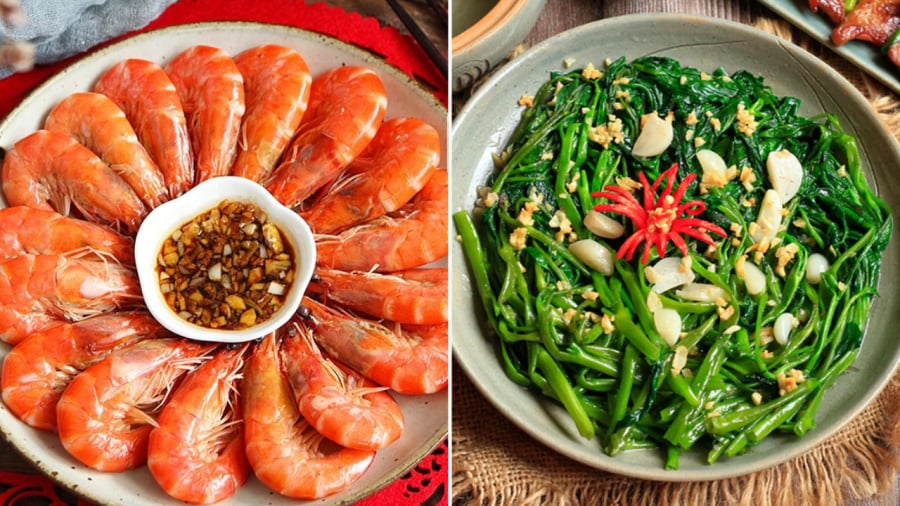Leaving cooked food overnight is not uncommon. However, it’s important to note that not all dishes should be left unattended until the next day. Once cooked, the nutritional value of food gradually decreases over time, and it may be susceptible to bacterial contamination, producing harmful substances that cannot be eliminated even when reheated. According to experts, here are five dishes that should not be left overnight for health reasons.
Seafood
Seafood is rich in vitamins and minerals, especially zinc and calcium. However, when left overnight in the fridge, cooked seafood loses these valuable nutrients. It can transform into harmful substances, adversely affecting your liver and kidneys.
The reason lies in seafood’s high protein content, which provides an ideal environment for bacterial growth, leading to the formation of toxic compounds.
When preparing seafood, cook only the amount needed for one meal to avoid leftovers and waste.
Cooked Vegetables
Vegetables are an essential source of fiber, vitamins, and minerals. Scientific research reveals that cooked vegetables, when left overnight, can be detrimental to health. This is because vegetables contain high levels of nitrates, which, when exposed to bacteria, can convert into nitrites—classified as a cancer-causing substance.

Soft-boiled Eggs
Soft-boiled eggs are enjoyed for their creamy, partially uncooked yolks. However, they are not suitable for overnight storage. Bacteria can still grow and produce harmful substances, leading to food poisoning.
As eggs are easy and quick to prepare, it’s best to cook them fresh and avoid leaving cooked eggs overnight.
Mushrooms
Cooked mushrooms, when left overnight, lose their nutritional value and become prone to bacterial contamination. Their flavor also diminishes significantly.
Soups
Soups containing flavor enhancers like MSG, salt, and fish sauce can undergo chemical reactions, producing substances that may be harmful to health if left for extended periods.
Additionally, storing leftover soup in metal pots made of aluminum or stainless steel can increase the risk of toxic compound formation.
If you plan to keep soup for the next day, refrain from adding extra seasoning and store it in ceramic or glass containers in the fridge. When reheating, adjust the seasoning to taste.
Some Tips for Food Storage in the Fridge
Store foods in separate containers to prevent cross-contamination. Especially separate raw and cooked foods to avoid bacterial transfer from raw to cooked dishes.
Allow hot food to cool down to room temperature before refrigerating to prevent thermal shock, which can alter the taste and nutritional value. Transfer the cooled food to containers, cover, and refrigerate.
Regardless of the type of food, whether raw or cooked, it should not be stored in the fridge for extended periods.
The Tiny Seafood Surprise: A Calcium-Rich Treat for Stronger Bones this Summer
Shrimp – A humble crustacean that packs a powerful punch when it comes to nutrition. With a calcium content three times that of soybeans, shrimp is a summer “delicious medicine.” This flavorful and nutritious delicacy is often overlooked by many Vietnamese, yet it boasts a plethora of health benefits, especially for bone strength. Let’s delve into the advantages of this modest yet mighty seafood and learn how to unlock its full potential.





































